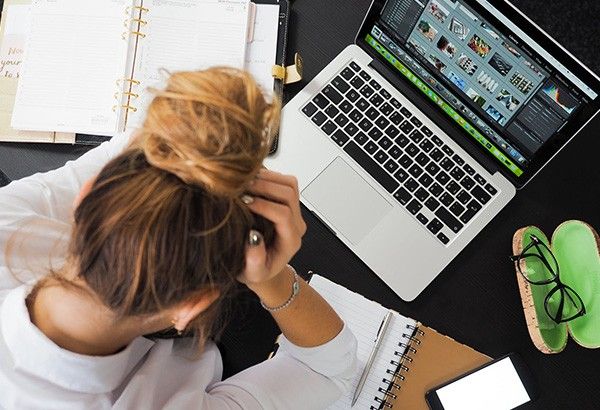Can a building make you sick? Doctors shed light on Sick Building Syndrome

MANILA, Philippines — Have you and your co-workers been feeling sick without being able to put finger on your exact illness or what causes it?
If yes, then you are probably suffering from Sick Building Syndrome (SBS), a collection of various symptoms and illnesses due to poor air quality in a building or shared confined space. This occurs only during office hours and affect two out of every 10 employees. The symptoms usually improve after leaving the building and come back when the person returns to the workplace.
In a working environment, employees spend a minimum of eight to 10 hours of their day in the office. It is the place where they stay the most next to their homes, so it should be conducive and pleasant for everyone. Companies must work on improving the overall working environment to make their employees perform well. Marking World Health Day, a top hospital in the Philippines, Makati Medical Center (MakatiMed), shares the importance of having a healthy and positive working environment and how workers can best deal with SBS.
Help in improving your workplace environment
People with sick building syndrome may complain about having severe headaches, nausea, fever, chills, throat irritation, and difficulty in breathing while inside the office. SBS has been suggested to be attributed to unsound infrastructure and poor ventilation, which result to poor air quality.
“We usually associate air pollution with the outside environment, but poor air circulation indoors can also harm people,” said doctor Gregorio Ocampo of the Department of Medicine.
Even if there’s still no proven cause, people can lessen their exposureto triggers like dust, pollution, and other chemicals by using cleaning products with low fumes, removing dust in their own desk regularly, and investing in LED or blue desk lights for less energy output, according to Dr. Ocampo. Employees can also request to update their computer monitors, other display systems and air-conditioning units as needed.
Find out about work-related stressors
Apart from the physical environment, excessive work stress or dissatisfaction, poor interpersonal relationships and poor communications are often seen to be associated with SBS.
“There are studies that show a combination of sensitivity to environment and stress can greatly contribute to sick building syndrome,” explained doctor Elizabeth Rondain of the Section of Psychiatry.
General symptoms like headaches, abnormal tiredness and sensation of cold and nausea are significantly associated with workload and conflict; while upper respiratory symptoms are linked to crowded workspaces and low work satisfaction. Even specific careers are connected to particular SBS symptoms. Skin symptoms like eczema, itching and rashes on the hands and face are associated with technical work; while general symptoms seem occur more with people working in communication, healthcare, transportation, and social work.
If your symptoms continue to persist, you should visit a doctor for proper consultation and management. There a lot of other possible causes and the symptoms you are experiencing may be connected to other illnesses.
“Working under comfortable conditions that make you happy and movitated at work is important. If your physical and psychosocial environment gets in the way of your health and performance, it’s time to implement changes and get yourself checked,” concludes Dr. Rondain.



















